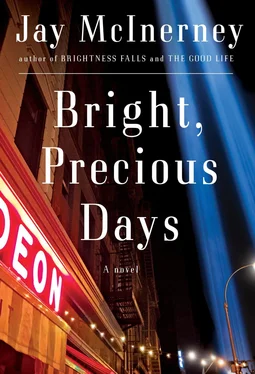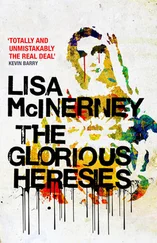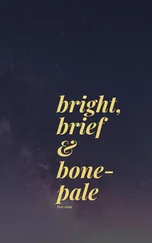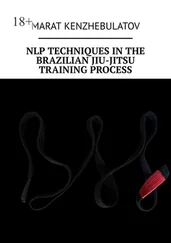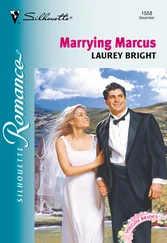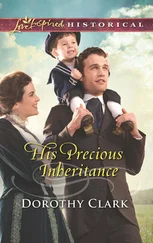When she appeared in his office doorway, escorted by his assistant, Gita, she looked even younger and hotter than in her photograph, so much so that he felt guilty at having invited her to lunch in the first place. She was petite and voluptuous, her figure highlighted by what looked like a vintage dress in a shiny red fabric, the narrow waist accented by a flared skirt. She had pouty red lips beneath a lacquered brunette bob and wore heavy black glasses that seemed somehow ironic, and suddenly he felt like Humbert fucking Humbert.
He rose and walked around his desk to greet her. “Astrid?”
“Very nice to meet you, Mr. Calloway.”
“Please, call me Russell.” He almost said “Mr. Calloway is my father” but realized how incredibly old that joke was, how old it would make him sound, and how lame, although it was possible, of course, that she was so young that it would be new to her. “Have a seat.”
“It’s weird,” she said, tilting her head to one side and then the other, like a parrot, as she studied him. “I feel like I know you.”
“If you’re imagining me as the character in Jeff’s book—”
“Sorry, I guess that’s pretty pathetic.”
“Jeff would have been the first to insist on the autonomy of his fictional characters.” Not wanting to sound pompous, he added, “When he published a chapter of the novel in Granta way back in ’87, he categorically denied it had anything to do with us.”
“You and Corrine.”
Hearing his wife’s name on these plump, shiny, strawberry-colored lips, he felt a twinge of — what? He nodded. “Yes. Nothing to do with us, he insisted.”
“And you believed him?”
At the time in question, Russell had been furious, the characters being all too recognizable in those early drafts. “Well, I wasn’t altogether pleased with that particular piece.”
She nodded adorably. “Still, you look exactly like I thought you would.”
“Only older,” he said, trying to maintain a modicum of sanity and decorum.
“And this place,” she said, waving a forefinger from side to side. “It looks like an editor’s office should.”
“Thanks. One of the perks of buying a venerable old publisher on life support was the nineteenth-century town house that came with it.” Russell tended to speak of himself as the proprietor of the operation, though in fact his equity share was considerably smaller than his investors’ and was about to shrink further if the fall list didn’t start performing better. This past spring he’d had to rent out the top floor of the town house — to a couture-shopping Web site, no less — and cram two subrights assistants into Jonathan’s office. His took up the back of the second floor, overlooking the courtyard and the scruffy garden out back, which looked far more impressive in the verdant months. The side walls were essentially floor-to-ceiling bookshelves that culminated twelve feet above the floors.
“So you weren’t…always here?”
“Back in Jeff’s day, no. I was working for Corbin, Dern then. I took over McCane, Slade in 2002.”
“Great place. Kind of creaky and dusty and Dickensian. Sorry, I didn’t mean that as an insult.” She stood up and walked over to a shelf filled with photographs, focusing on the one of Jeff slouched against the door of his East Village apartment.
“That was taken in 1986.”
“Wow, do you think we could get a copy for the site?”
“I’m sure we could manage that.”
“This is cool,” she said, pointing at the photo of Jack Nicholson, a signed publicity still from The Shining. “What does it say?”
“It says, ‘To Russ, who gives good book.’ I did the movie tie-in paperback years ago and Stephen King got him to sign that for me. I don’t know why I still have it. And that’s John Berryman, one of my all-time favorite poets. You should read The Dream Songs if you haven’t.”
“Is he the one who jumped off the bridge?”
“Well, yes.” He was pleased the name was still out there, but hated to hear Berryman reduced to a tabloid headline.
“Who’s that?” she asked, nodding toward a Lynn Goldsmith photo of Keith Richards.
“You’re kidding?”
She shrugged.
“Keith Richards. Of the Rolling Stones.”
“Did you publish him or something?”
He shook his head. “Sadly, no.” The grittier of the Glimmer Twins was, in fact, under contract to Little, Brown for a memoir, with an advance so staggering that Russell had never even considered playing.
“What’s the significance?”
“It’s Keith fucking Richards. ”
—
After making sure she wasn’t a vegetarian, as so many young people seemed to be these days — in which case it would’ve been out of the question — he walked her some five blocks south of his West Village office to the Fatted Calf, a self-proclaimed gastropub inspired by recent trends in ever-trendy London. Although it had been open less than two years, it looked as if it had been in business since Prohibition, with creaky, mismatched tables and chairs, its framed butcher’s-eye diagrams of vivisected cow carcasses, on which each cut was carefully labeled. The maître d’—if a guy with a chullo cap and a soul patch qualified as such — led them to a rickety back table with a rough, water-stained top. Russell had discovered the place early on, thanks to a tip from an English writer he published, and had started coming before it became one of the toughest seats in town, although the lunch hour was relatively uncrowded; there weren’t any office buildings in the neighborhood, and the staff inevitably seemed surprised that anybody was actually vertical at this undignified hour.
“The food’s great,” Russell told her. “At night it’s a mob scene. Two-hour wait. They supposedly don’t take reservations, but if you’re a celebrity or a friend of the house, there’s a phone number.”
Astrid examined her surroundings with new interest. “I take it you have the number.”
He shrugged. “I come here a lot.”
“So, what do you recommend?” she asked, leaning forward and gazing at him as if prepared to follow any directive he might issue. He wondered if this was how professors lived, bathed in the admiration of young people, and if so, how they managed it. He’d considered the academic life, and even applied to several grad schools before dropping that idea. Now, mesmerized as he was, he was pretty certain he could keep his mind straight for a couple of hours. But he felt he’d be a shivering wreck if he had to contend with this girl for, say, an entire semester.
“The chef has somehow convinced a lot of New York foodies that an ox-tongue sandwich is a desideratum, not to mention fried tripe,” he said, sounding — he couldn’t help it, apparently — somewhat professorial. “But I remain agnostic, not to say skeptical, about stuff like that. I’d recommend the burger, which they make from a special blend of different cuts of beef from this bespoke butcher in the Meatpacking District, who may, in fact, be the last butcher in the Meatpacking District. All the others got priced out by nightclubs and fashionable restaurants that’ll soon go out of business to make room for even more fashionable restaurants and clubs.”
“Do you mind?” she asked, holding up a small digital recorder.
“I’m not sure I have anything all that interesting to say.”
“Can I get you something to drink?” asked the waitress, a brunette with red streaks in her hair and multiple nose rings. Astrid looked at him for guidance. Although he was known to have a cocktail or a glass of wine with lunch, Russell ordered an iced tea. At some point he had to figure out her age.
“Can I get a Belvedere Bloody Mary?” she asked.
Читать дальше
